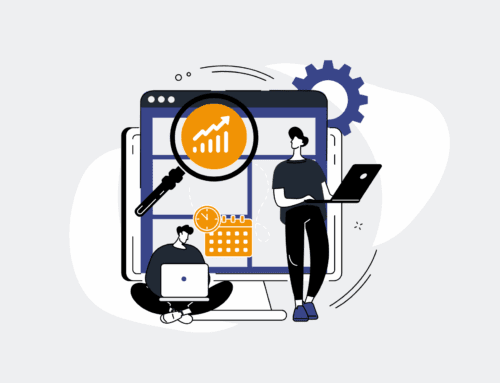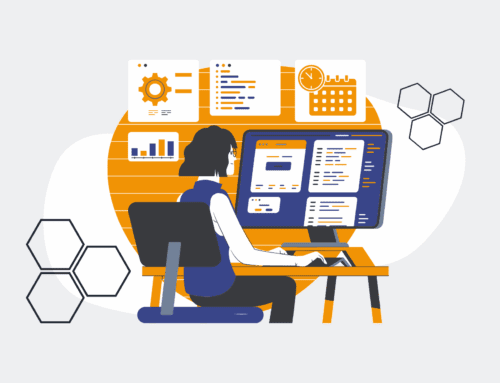A Glossary of Ethical & Legal Definitions in AI-Powered Hiring
In the rapidly evolving landscape of AI-powered hiring, understanding the ethical and legal implications is paramount for HR and recruiting professionals. As automation tools become integral to talent acquisition, ensuring fairness, transparency, and compliance is not just a regulatory necessity but a cornerstone of responsible recruitment. This glossary defines key terms, offering clarity and practical context to navigate the complexities of AI ethics and legal frameworks in your hiring processes.
Algorithmic Bias
Algorithmic bias refers to systematic and repeatable errors in an AI system that create unfair outcomes, such as favoring or disfavoring certain groups of candidates. This bias often stems from the data used to train the AI, which may reflect historical societal biases or incomplete representation. In AI-powered hiring, algorithmic bias can lead to discriminatory shortlists, skewed resume rankings, or inaccurate predictive analytics, undermining diversity and inclusion efforts. HR and recruiting professionals must audit AI tools for bias, ensuring training data is diverse and representative, and implementing human oversight to mitigate discriminatory impacts and ensure equitable opportunities for all applicants.
Fairness in AI
Fairness in AI encompasses the principles and practices aimed at ensuring AI systems treat all individuals and groups equitably, without prejudice or undue disadvantage. This concept is multi-faceted, often considering demographic parity, equalized odds, or statistical parity in outcomes. For AI-powered hiring, fairness means that algorithms should not discriminate based on protected characteristics like race, gender, age, or disability. Achieving fairness requires careful design, rigorous testing, and continuous monitoring of AI models. Recruiting teams must prioritize tools that offer transparent fairness metrics and allow for adjustments to prevent adverse impact and uphold ethical hiring standards, fostering trust and promoting a diverse workforce.
Transparency (in AI Hiring)
Transparency in AI hiring refers to the ability to understand how an AI system makes its decisions and what factors influence its recommendations. It means the processes, data, and logic behind AI-driven recruitment tools are not a black box but are explainable and auditable. For HR professionals, this is crucial for validating the fairness and legality of hiring decisions. Transparency allows recruiters to articulate to candidates why certain profiles were selected or rejected, fostering trust and providing actionable feedback. It also enables internal and external auditing to identify and rectify potential biases or errors, ensuring compliance with anti-discrimination laws and promoting ethical AI usage.
Accountability (in AI Hiring)
Accountability in AI hiring establishes who is responsible for the outcomes and impacts of AI systems, particularly when errors, biases, or discriminatory results occur. It addresses the “who is to blame” question when an automated hiring process leads to unfair or illegal outcomes. For HR and recruiting departments, accountability means having clear policies, governance structures, and oversight mechanisms in place to assign responsibility from AI developers and vendors to the implementing organization. This includes regular audits, impact assessments, and remediation plans. Establishing clear lines of accountability ensures that organizations proactively address risks, comply with regulations, and uphold ethical responsibilities when deploying AI in talent acquisition, protecting both the candidates and the company’s reputation.
GDPR (General Data Protection Regulation)
The General Data Protection Regulation (GDPR) is a comprehensive data privacy law in the European Union and European Economic Area that grants individuals significant control over their personal data. For AI-powered hiring, GDPR dictates strict rules for collecting, processing, and storing candidate data, including resume details, assessment results, and interview recordings. Key requirements include obtaining explicit consent, ensuring data minimization (only collecting necessary data), providing data access and portability, and upholding the “right to be forgotten.” Recruiters using AI tools globally must ensure their systems are GDPR compliant, especially when processing data of EU citizens, to avoid substantial fines and reputational damage, making secure data handling and transparency non-negotiable.
CCPA (California Consumer Privacy Act)
The California Consumer Privacy Act (CCPA) is a state statute intended to enhance privacy rights and consumer protection for residents of California. While primarily focused on consumer data, its amendments (CPRA) extend privacy protections to employee and job applicant data, impacting AI-powered hiring processes. Under CCPA, Californian candidates have rights such as knowing what personal information is collected about them, why it’s collected, and who it’s shared with. They also have the right to request deletion of their data and opt-out of its sale. HR teams deploying AI in recruiting must ensure their data collection and processing practices comply with CCPA, particularly for California residents, providing clear privacy notices and mechanisms for candidates to exercise their rights to maintain legal compliance and build candidate trust.
AI Ethics Principles
AI ethics principles are foundational guidelines designed to ensure the responsible development and deployment of artificial intelligence. Common principles include fairness, accountability, transparency, privacy, safety, and human oversight. In the context of AI-powered hiring, these principles guide organizations in creating and using AI tools that align with societal values and avoid harm. For instance, fairness ensures non-discriminatory outcomes, while transparency allows for understanding how decisions are made. Adhering to these principles is crucial for HR leaders to build trustworthy AI systems, mitigate risks, comply with emerging regulations, and maintain a positive brand image, establishing a framework for ethical innovation in recruitment and talent management.
Data Privacy
Data privacy refers to an individual’s right to control how their personal information is collected, used, stored, and shared. In AI-powered hiring, this involves protecting sensitive candidate data, such as contact information, employment history, assessment scores, and demographic details. Recruiters must ensure that AI tools and platforms adhere to strict data privacy standards, complying with regulations like GDPR and CCPA. This includes secure data storage, anonymization or pseudonymization where appropriate, and clear consent mechanisms for data processing. Prioritizing data privacy builds trust with candidates, mitigates legal risks, and demonstrates an organization’s commitment to responsible data stewardship, which is essential for maintaining a strong employer brand in an automated environment.
Data Security
Data security encompasses the measures taken to protect data from unauthorized access, corruption, or theft throughout its lifecycle. For AI-powered hiring, this means safeguarding the vast amounts of sensitive candidate and employee data processed by AI systems, from initial application to onboarding. Robust data security protocols include encryption, access controls, regular security audits, and threat detection systems. Breaches of data security can lead to significant financial penalties, reputational damage, and loss of candidate trust. HR and IT teams must collaborate to ensure AI recruitment platforms are secure, preventing data leaks or malicious attacks, and guaranteeing the integrity and confidentiality of personal information in an increasingly automated and data-rich hiring ecosystem.
Explainable AI (XAI)
Explainable AI (XAI) refers to the development of AI models that can provide clear, understandable explanations for their decisions, rather than operating as opaque “black boxes.” In AI-powered hiring, XAI enables recruiters to comprehend why an algorithm scored a candidate highly, flagged a resume for certain skills, or predicted a particular job fit. This capability is vital for compliance, auditing, and building trust. XAI helps identify and correct biases, justifies automated decisions, and allows HR professionals to defend their hiring choices against legal challenges or candidate inquiries. Implementing XAI ensures that AI tools are not just efficient but also transparent and defensible, supporting ethical and legally sound recruitment practices.
Adverse Impact
Adverse impact, also known as disparate impact, occurs when a seemingly neutral employment practice or policy disproportionately excludes or disadvantages individuals from a protected group, even if the intent was not discriminatory. In AI-powered hiring, an algorithm might, for example, disproportionately screen out candidates from a certain demographic due to biases embedded in its training data or the design of its assessments. Identifying adverse impact typically involves statistical analysis (like the “4/5ths rule”). HR teams must regularly audit their AI recruitment tools for adverse impact, ensuring that validated selection processes do not inadvertently create barriers for protected groups, thereby maintaining compliance with equal employment opportunity laws and fostering genuine diversity.
Disparate Treatment
Disparate treatment is a form of intentional employment discrimination where an employer treats an individual differently based on their protected characteristics (e.g., race, gender, age, religion). While AI systems are designed to be objective, disparate treatment can still arise if an AI is programmed with discriminatory rules or if human users introduce bias into the system’s inputs or interpretations. For example, an AI could be instructed to favor candidates from specific demographics. HR professionals must ensure that AI algorithms are free from explicit discriminatory criteria and that their implementation does not lead to intentional unequal treatment. Regular audits, clear ethical guidelines, and robust human oversight are essential to prevent disparate treatment in AI-powered hiring and uphold legal and ethical standards.
Consent (in Data Collection)
Consent in data collection refers to an individual’s explicit agreement to allow an organization to collect, process, and store their personal data. In AI-powered hiring, obtaining valid consent is a fundamental legal and ethical requirement, particularly under regulations like GDPR and CCPA. This means informing candidates clearly about what data will be collected (e.g., resume details, video interview analytics), how it will be used by AI tools, who will access it, and for how long it will be retained. Consent must be freely given, specific, informed, and unambiguous. Recruiting platforms utilizing AI must provide clear consent forms and mechanisms for candidates to withdraw consent, ensuring transparency and empowering individuals with control over their personal information throughout the hiring process.
Automated Decision-Making (ADM)
Automated Decision-Making (ADM) refers to decisions made solely by technological means without human intervention. In AI-powered hiring, ADM might involve an algorithm automatically rejecting candidates whose resumes don’t meet specific keyword criteria or prioritizing applicants based on predictive analytics. While ADM can boost efficiency, it raises significant ethical and legal concerns, particularly regarding fairness, transparency, and accountability. Regulations like GDPR grant individuals the right not to be subject to a decision based solely on automated processing if it produces legal effects or similarly significant effects concerning them. HR must establish clear policies for ADM, ensuring human oversight for critical decisions, providing avenues for candidates to challenge automated outcomes, and mitigating risks of bias and discrimination.
Human Oversight
Human oversight in AI-powered hiring refers to the essential practice of retaining human review, judgment, and intervention capabilities over automated processes. It means that while AI tools can assist in tasks like resume screening, candidate matching, or preliminary assessments, critical decisions ultimately involve a human professional. This ensures that potential algorithmic biases are caught, edge cases are handled appropriately, and candidates are not solely subjected to automated judgments without recourse. For recruiting teams, human oversight provides a crucial safety net, maintaining ethical standards, ensuring legal compliance, and fostering a candidate-centric experience. It transforms AI from a decision-maker into a powerful decision-support tool, leveraging its efficiency while preserving human empathy and expertise.
If you would like to read more, we recommend this article: Field-by-Field Change History: Unlocking Unbreakable HR & Recruiting CRM Data Integrity







